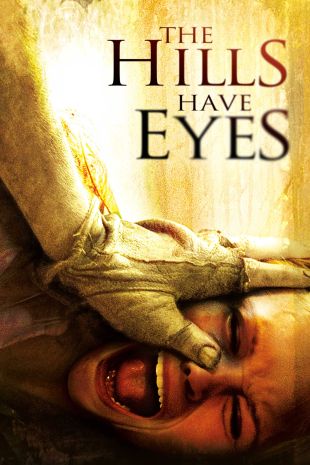The year was 1977 and the the Vietnam War had just ground to a slow and painful halt. The definition of "family" in America was changing as shell-shocked troops -- considered "lucky" by the naïve for having survived the horrific atrocities viewers at home only glimpsed on the nightly news -- were attempting to return to their families and loved ones and make sense of life in the serenity of the suburbs. But there was no going back; America had changed, and after two excruciating world wars and an extended quagmire in which the nation's youth were fed into the war machine and spat out in chunks, the culture of violence was flowing through her veins like an all-consuming disease. Ambitious horror filmmaker Wes Craven had absorbed the death and destruction that had become too much to bear for the numbed masses, and proceeded to shatter the senses of moviegoers with the boundary blasting sadism of Last House on the Left. As horror fans ached with curiosity to see what terrors he would bring to the screen next, Craven was cooking up a nihilistic tale of raw survival set against the scorching sun of the Nevada desert. Politically, Craven's sophomore vision personified the growing chasm between the right and the left while simultaneously serving to explore the differences between where we thought we were as a culture, and the contradictory reality so painfully obvious to anyone who still had the stomach to keep up with current events.
Flash forward to the year 2006 and another war is going on. This time it's the "war on terror" and, much like its mid-20th century counterpart, it seemed to have no end in sight. Over in Hollywood the remake trend was on fire, and whose catalogue better to raid than Hollywood horror franchise factory himself, Nightmare on Elm Street and Scream creator Wes Craven? Fresh-faced French filmmaker named Alexandre Aja's had just delivered what many considered to be one of the most unforgiving mainstream horror efforts in the last decade, and he needed a winning follow up to cement himself as a true master of the genre. Though the first half of the new The Hills Have Eyes seems to follow Craven's original screenplay almost to the letter -- including the harrowing initial raid on the family caravan that nearly recreates the original atrocity shot for shot -- the heavy handed second half takes an ill-advised turn off the main road to offer a none-too-subtle commentary on the destructive capabilities of the American machine that paints in broad, reactionary strokes where a steady, subtle hand may have been a bit more effective.
/_derived_jpg_q90_584x800_m0/TheHillsHaveEyes2006-Still7CR.jpg)
In terms of surface aesthetics, Aja's flick is retro-hip thanks to Maxime Alexandre's hyper-saturated palate, Daniel Glicker's throwback costume design, and Alessandra Querzola's sparse sets. Composers Tomandandy's unconventional use of discordant, tune-bent strings is strikingly effective in creating a mood of ill-ease early on before inexplicably, and somewhat tragically, swelling to an overbearing eagre of faux-triumphant horns in the final scenes. On the civilized side of things, the performances are generally strong thanks in large part to Ted Levine's turn as the jingoistic, praise-the-lord and-pass-the-ammo patriarch, a pacifist-to-pit bull transformation by unrecognizable X-Men alum Aaron Stanford, and a nurturing, heart-rending show by matronly Kathleen Quinlan, whose suffering at seeing her family butchered before her very eyes is only the beginning of her agonizing trauma.
In the end though, Alexandre Aja wants it both ways; he wants to remain staunchly faithful to the original while altering the proceedings to take on new meaning in a new era, and he wants to turn in an inventive, viscerally grating, nuevo-grindhouse epic that will subvert the multiplex experience while simultaneously getting sucked into the creatively exhausted remake trend. While the resulting film could certainly be considered reprehensible in its relentless pursuit to torment the audience, the exact same could be said for Craven's original back in 1977 -- and for viewers looking to be run through the ringer, the new Hills certainly obliges with ruthless abandon. For audiences who hunger for some form of intellectual nourishment amongst the bloody chaos, however, Aja's ponderous, ham-handed evisceration of the American swagger may prove a bit too bombastic to truly drive home his point effectively.
